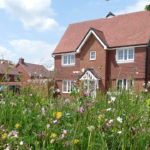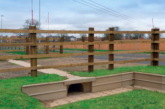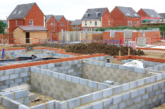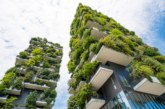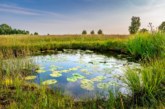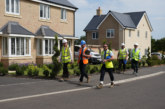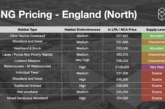A new guide highlights that biodiversity should be considered at the earliest stages of planning new home developments to encourage wildlife and help reverse habitat decline.
Climate change and the decline of wildlife are the great challenges of our time which, combined with Government demands for greatly increased housing supply, are creating a balancing act which housebuilders and developers must consider in all its aspects. Sustainability must be a key consideration in housing developments ensuring a positive impact on wildlife and the adoption of nature-based solutions.
Much of the focus on sustainable housing in recent years has been in reducing carbon emissions, but the coronavirus pandemic has placed emphasis on caring for local wildlife.
- The majority of house-buyers say the pandemic has highlighted the need for more nature-rich green space.
- The UK Prime Minister recently said he will make “tackling climate change and biodiversity loss” the government’s “number one international priority”.
58% of UK species have declined over the last 50 years, and urbanisation is considered one of the key reasons why. The National House Building Council (NHBC) Foundation has partnered with the RSPB and Barratt Developments to produce guidance on how the housebuilding industry can incorporate green infrastructure into new build homes and enhance and protect biodiversity within developments to help deliver wider public health benefits.
The new report Biodiversity in new housing developments: creating wildlife-friendly communities has just been launched providing guidance on planning for beautiful places, key topics include:
- Implementing Sustainable Drainage Systems (SuDS) which mimic natural processes in managing rainfall through the use of landscape form and vegetation
- Installing roost bricks for bats and designing lighting plans in a bat-friendly way
- Putting in bird nest bricks that provide permanent nest features for declining species such as swifts
- Ensuring boundaries enable hedgehogs to move freely through a housing development.
Beccy Speight, CEO, RSPB said: “The housebuilding industry is uniquely placed in having an opportunity to create not just sustainable houses, but new, sustainable communities, where people thrive alongside wildlife. This guide is a great introduction to the principles and practicalities of creating wildlife-friendly communities and a great addition to the sustainable housing toolkit.
I hope that the industry will embrace it and help to drive positive change. We all have our part to play as we seek to revive our world.”
Richard Smith, NHBC’s Head of Standards, Innovation and Research said: “In a year so focused on health, this report is a timely reminder of the many benefits nature can provide when successfully integrated into new homes and developments.
“As we head towards COP26, we want to support those in the housing and construction sector to think more about how they can better integrate biodiversity and climate resilience into new home developments to help to achieve the country’s climate change goals and improve health and wellbeing in local communities. Biodiversity Net Gain will soon become mandatory in England so there’s no excuse not to start looking at these issues now.”

